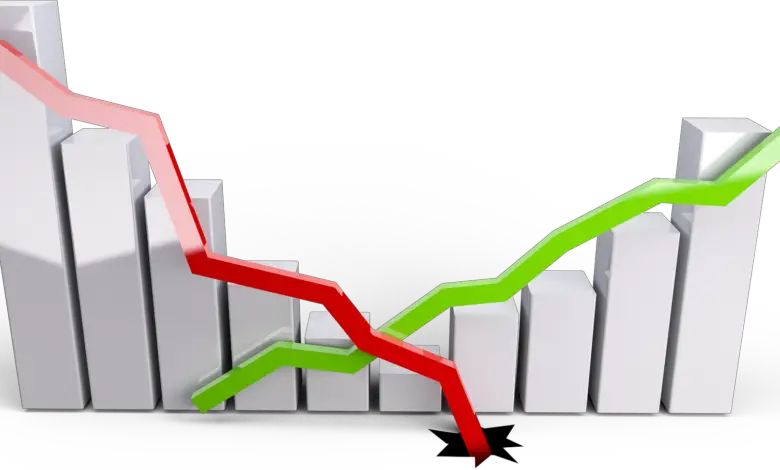What could a recession mean for the pound in 2023?

The recent coronavirus pandemic has forced many businesses to close their doors and put a stop to international travel.
This, in turn, has caused the value of the pound to drop significantly. Some experts are now predicting that another recession could hit within the next few years – which would be bad news for the pound. In this blog post, we’ll take a look at what a recession could mean for the pound in 2023 and beyond. So if you’re worried about your money’s future, read on!
The UK is currently experiencing a period of economic growth, with many sectors seeing an increase in productivity. This has been largely attributed to the government’s efforts to create jobs, reduce taxes and invest in infrastructure projects. However, this growth could be short-lived if certain factors are not taken into account. For example, rising inflation levels may cause consumer spending to decline which can lead to a slowdown in the economy. Additionally, there is always the risk of a global recession or trade wars that could impact the UK’s economic prospects significantly. Therefore it is important for policymakers and businesses alike to ensure that they are prepared for any potential downturns by creating robust strategies and plans for long-term success.
A recession could mean that the value of the pound decreases, making imported goods more expensive
Nobody likes to think of a recession, but it is always good to be prepared for the worst. If a recession does come about, it could have huge implications for the value of the pound. Since so many of the goods that we consume in everyday life are imported from abroad, this could mean that prices increase significantly. One way of being smart with our money is to start stocking up on necessities while they are still accessible and prices are lower. Though we may not be able to do much if the pound takes a hit during a recession, hoarding some essentials before prices become inflated in response to supply-chain disruptions can help save us money in an uncertain economy.
This could also lead to higher interest rates and inflation, as well as unemployment
When it comes to our economic health as a society, we can’t deny the impact of some of the major components of our economy. Interest rates and inflation are two big issues that can have serious implications for us. In particular, higher interest rates and rising inflation both tend to lead to increased unemployment in an economy. This is because people often find it difficult to acquire loans or other forms of credit due to higher interest rates, making them unable to access funds for long-term financing or investments. Additionally, inflation reduces buying power, making it hard for businesses to invest which again leads to job losses combined with a general slowdown in the economy. Therefore, if we look at our current state of affairs and take steps to control these factors now, it could go a long way in creating stability and preventing further economic hardship down the line.
However, it’s important to remember that recessions don’t last forever and the economy will eventually recover
It’s normal to feel a bit overwhelmed by the current recession, and it can be difficult to keep up hope in the face of numbers and reports that can seem like bad news on all sides. But, it’s important to hold onto the fact that recessions do eventually come to an end. Even though things may look bleak now, we have seen economic recoveries time and time again. As the months pass, businesses will start growing again and the markets will begin to stabilize. Don’t forget that recessions are simply a part of our economic cycle – even if it doesn’t feel like it! Hanging onto this knowledge can provide some comfort in the middle of what is often an unpredictable time for many.
There are things you can do to prepare for a recession, such as saving money and reducing your debts
Having the current economy in mind, it’s no wonder why so many of us are feeling a bit anxious about our financial security and stability. Whether things stay the same or the worst happens, being prepared is always a good option. The best way to start is by saving money if you can; even little amounts can help ease your future worries. Reducing your debts can also be useful: by trying to pay off any high-interest debts or loans as soon as possible, you may save yourself from having an even bigger burden during a potential recession period. Preparing will never hurt and it’s always better to be safe than sorry!
Ultimately, it’s impossible to predict exactly what will happen during a recession, so it’s important to stay calm and be prepared for anything
In an ever-shifting and unpredictable economy, recessions can cause worries and anxieties for some. Yet, it’s important to remember that although no one can predict what will happen exactly during a recession, everyone can remain calm and be prepared. To stay one step ahead, put together a realistic budget plan – don’t overreach but still think far enough into the future. Alongside that, build up your savings account so you’ll have some extra cushion in case of any unexpected changes or expenses. Ultimately, keeping level-headed and having a bit of a financial safety net will make a recession feel less intimidating and more manageable.
While it’s impossible to say exactly what will happen during a recession, there are some things you can do to prepare. Saving money and reducing debts are good ways to weather the storm. And remember, recessions don’t last forever. The economy will eventually recover. So try not to panic and stay calm throughout the whole ordeal.




